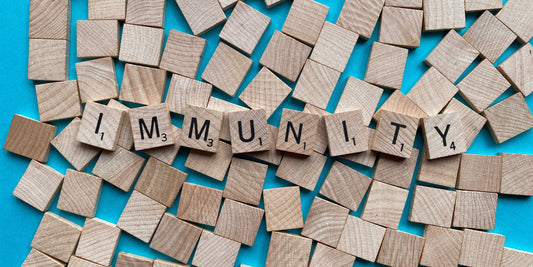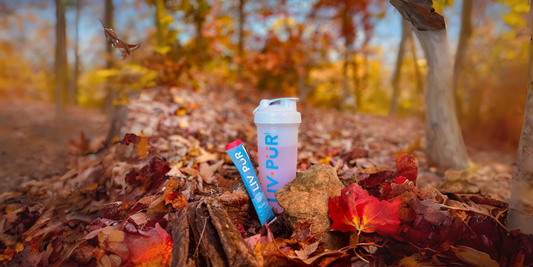Today, let's explore about something we all deal with at some point in our lives: depression. It's not just your run-of-the-mill sadness; it's a complex mental health condition that can pack quite a punch. So, grab a cup of tea, get comfy, and let's explore the ins and outs of understanding depression.
What's the Deal with Depression?
Alright, so depression isn't your everyday blues. It's like an unwelcome guest that crashes the party, messing with your mood, thoughts, and daily life. This sneaky intruder can rob you of joy, strain your relationships, stifle your creativity, and, in its worst form, even lead to despair and those scary thoughts of saying goodbye to this world. Shockingly, it's involved in nearly 40,000 suicides every year. Let's dive deeper into this shadowy condition and learn how to tackle it.
Depression: A Mood Disorder That Just Won't Quit:
Depression, my friends, is a mood disorder that's like that annoying guest who refuses to leave. It brings along feelings of sadness, emptiness, and the loss of happiness, and it's not your average mood swing. While life's curveballs, like losing a job or a loved one, can be triggers, depression sets itself apart with its staying power and intensity.
Even when life starts looking up, depression often hangs around, throwing your emotions out of whack. The most common form of this mood squatter is major depressive disorder, and it's known for its episodes that last at least two weeks. Depression can last for weeks, months, or even years, making it a long and difficult road for many. It's like an uninvited guest that just won't leave the party.
Recognizing the Telltale Signs of Depression:
Now, how do you spot this unwelcome guest? It's more than just feeling blue. The American Psychiatric Association's Diagnostic and Statistical Manual of Mental Disorders (DSM-5), the go-to guide for mental health pros, has a checklist for major depressive disorder (MDD), also known as clinical depression. To get an MDD diagnosis, you should have faced at least five of these symptoms almost every day for a minimum of two weeks:
- Feeling like you're carrying the weight of the world, or as we say, "feeling the blues."
- Losing interest in the stuff you used to enjoy, like hobbies and hanging out with friends.
- Going through unexplained changes in appetite or weight (and it's not because you're on a diet).
- Being tired all the time, with no good reason.
- Struggling to focus or make decisions, as if your brain is in a fog.
- Feeling restless and anxious, maybe even pacing around or wringing your hands, or on the flip side, feeling slow and sluggish.
- Sleep troubles, whether it's insomnia or oversleeping.
- Having thoughts about death or even suicide.
These depression symptoms are like the alarm bells that ring when depression pays a visit. It's like your body's way of saying, "Hey, something's not right here!"
Is There Hope for Depression?
Now, let's get to the good stuff. Depression doesn't have a magic recovery, but there are treatments that can make a world of difference. The key is to start treatment early for the best shot at success.
Some folks may never see depression again after one episode, while others might face it on and off. But many find relief through treatment.
However, even with effective therapy, there's a chance of relapse. It's worth noting that around 60% of individuals with depression never seek help. To lower your risk of relapse, those on depression meds should stick to their doctor's advice, even if the symptoms ease up.
What Makes Depression Tick?
Depression doesn't play favorites; it can hit anyone, regardless of their seemingly perfect life. Several factors can stir up depression:
- Biochemistry: Changes in brain chemicals can mess with your mood.
- Genetics: Depression often runs in families, so if your twin is dealing with it, there's a 70% chance you might too.
- Personality: If you're the type who's hard on themselves, stressed out easily, or tends to see the glass as half empty, depression might be more likely to knock on your door.
- Environment Matters: Growing up in a world filled with violence, neglect, abuse, or poverty can increase your odds of dealing with depression.
What Caused Depression? The Trigger Effect:
So, what kicks off this gloomy party in your brain? It's like a combo of life stressors that pile up. Things like losing a loved one, feeling alone, losing your job, or just not having the right tools to handle life's curveballs can turn up the heat on depression.
The elderly often feel the brunt of it, but loneliness is spreading like wildfire among young folks too. And don't underestimate the stress of losing a job – even the smallest hiccups in life can turn into big worries if you're not equipped to deal with them.
Researchers think a mix of factors, like brain chemistry, genetics, stressful events, medical issues, and even certain medications and alcohol, can all play a role in the depression game.
Treatment Options to Kick Depression to the Curb:
So, here's the good news – depression can be managed. In fact, about 80% to 90% of folks who seek treatment for depression can turn things around. There are a few ways to tackle it:
Psychotherapy
Think of this as a chat with a mental health pro. They'll help you spot and change those unhelpful thoughts and behaviors. There are different types of therapy out there, with cognitive behavioral treatment (CBT) being the crowd favorite. Sometimes, just a few sessions can do wonders, while others might need counseling for months or even years.
Medication
Antidepressants, available by prescription only, can tweak your brain chemistry to kick depression to the curb. There are lots of different types, so it might take some trial and error to find the one that clicks. Even if they come with side effects, they often get better over time. If the meds you're on aren't doing the trick, chat with your doctor– there might be a better fit out there.
Complementary Medicine
These are treatments you can try alongside the usual Western approaches. Think acupuncture, massage, hypnosis, biofeedback, and more. These can be helpful for folks with mild depression or lingering symptoms.
Brain Stimulation Therapy
For those dealing with mild to severe depression, brain stimulation can be a game-changer. There's stuff like transcranial magnetic stimulation (TMS), electroconvulsive therapy (ECT), and vagus nerve stimulation (VNS) that can give depression a run for its money.
What You Can Do at Home
And here's the cherry on top – there are things you can do on your own to fight depression:
- Get Moving: Being physically active can give your mood a boost.
- Sleep Right: Stick to a sleep schedule to help your body find its rhythm.
- Eat Well: A healthy diet can make a big difference in your mood.
- Watch What You Take: Limit alcohol and drug use.
- Hang with Loved Ones: Spending quality time with family and friends can do wonders for your mental health.
Why Stress Reduction Matters:
Stress and depression are like two peas in a pod. Reducing stress is key to managing depression.
- Mindfulness: Techniques like mindful breathing can help you stay in the present and reduce stress.
- Yoga: It's not just about stretching; it can actually improve your mood and chill you out. 3. Meditation: This can help you relax, worry less, and sleep better.
- Counseling: Talking it out with a therapist can help you deal with negative thoughts and get some support.
-
Simple Pleasures: Sometimes, just going for a walk or listening to music can be great stress relievers.
Wrap It Up:
Depression is a heavyweight, but it's a fight you can win. If you or someone you know is dealing with depression, don't go it alone. Reach out for help, and remember, you're not alone in this battle.
If you're looking for a little extra boost, check out LivPur's Recovery powder. It's packed with amino acids that can help your body recover. It also has adaptogens that help to maintain regular cortisol levels. Cortisol works with parts of the brain to control mood, motivation, and fear. It also helps regulate the body's response to stress.
Because when you're fighting depression, every little bit helps!




